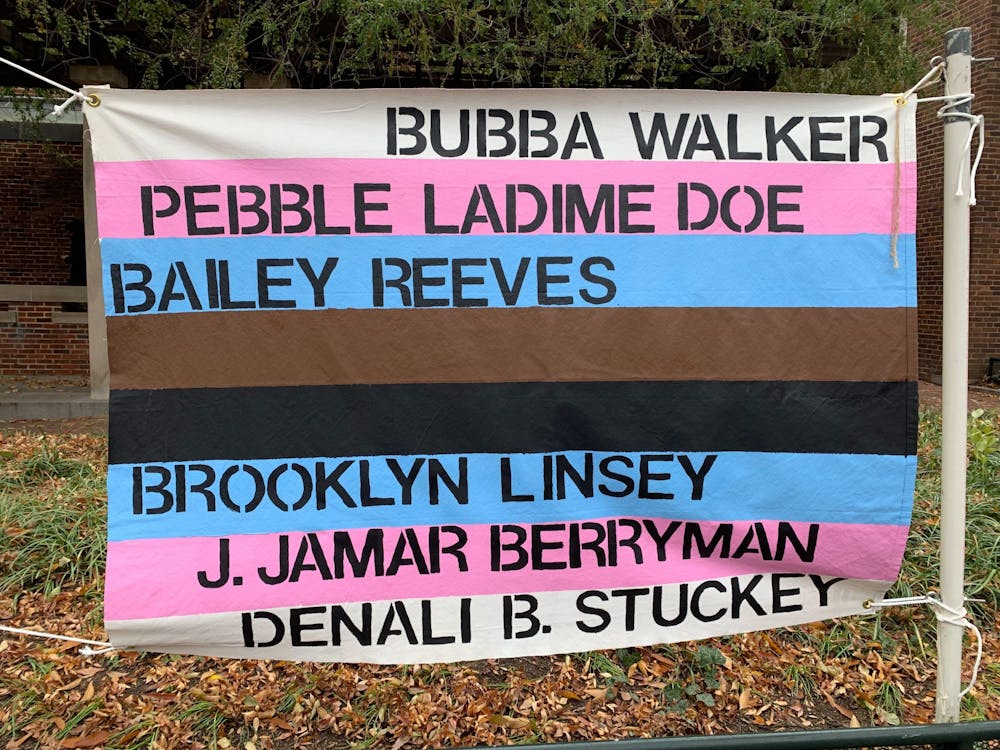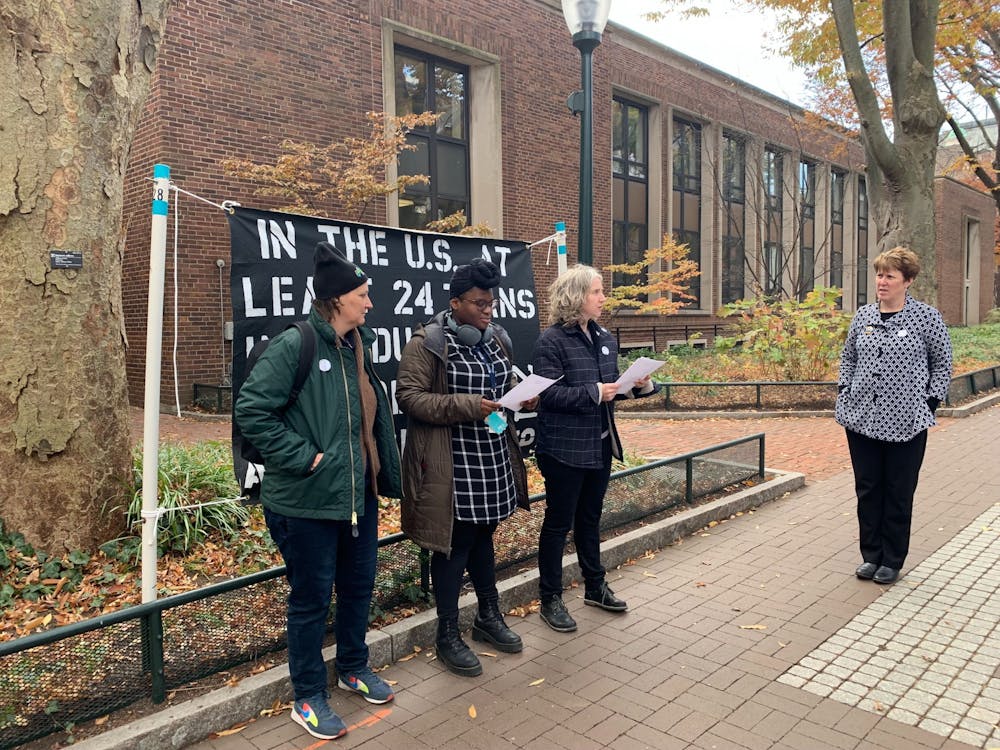
LGBT Center volunteers hung up transgender flags on Locust Walk in front of Steinberg-Dietrich Hall.
Credit: Nidhi BhattStudents involved in the vigils for Transgender Day of Remembrance claimed noise guidelines sent by the Office of Student Affairs silenced their activism on Locust Walk.
The LGBT Center held a series of vigils on Locust Walk in honor of Transgender Day of Remembrance on Nov. 20. Students and professors assembled near transgender pride flags outside of Steinberg-Dietrich Hall to read out the names of transgender and gender-nonconforming individuals who were killed in 2019.
The day before the event, LGBT Center social work intern Loran Grishow-Schade emailed all the facilitators of the Transgender Day of Remembrance stating that OSA issued guidelines to the group to not be too loud and to avoid blocking the flow of traffic.
Some students, however, expressed concern about the policy and viewed it as an attempt to silence students at the vigil.
“We should be loud about this issue, we shouldn’t be quiet,” said Jax Lastinger, a second-year student in the Graduate School of Education who volunteered to read words of remembrance at the vigils. “We should be shouting from the rooftops that what is happening to the transgender community is not okay."
OSA officials said their interaction with the LGBT Center was standard practice for groups organizing events on Locust Walk.
“My office both works to support student groups and their events, as well as serve as the point of contact for Open Expression support,” Katie Bonner, executive director of OSA wrote in an email to The Daily Pennsylvanian. “As such, when a student group is planning an event where sound concerns might be an issue, we provide guidance in line with the policy, so that they plan accordingly.”

Fine Arts professor Sharon Hayes (second to right) was one of the 18 faculty and staff members who read the names and called for a moment of silence at the event.
Other groups on Locust Walk, however, play loud music on campus while selling tickets and baked goods for fundraising. The a capella group Penn Sirens never received an email from OSA regarding noise levels, said College freshman Sara Hansson, the Penn Sirens publicity director.
“To book space for Sirens, I had to sign up on a portal and make a reservation for a pole space," Hansson said. She added that Penn Sirens plays music at its table on Locust Walk to sell tickets for its shows.
Rachel Watson, who is a second-year student in GSE and was a volunteer at the vigils, said the noise guidelines made it difficult for the event to attract people to walk past.
“Part of the purpose of the free-form and pop-up nature of the vigils was to get passersby to pay attention to the names, to the fact that it was the Trans Day of Remembrance, and to the ways that black trans women are particularly affected by that violence," Watson said. "It's difficult to draw peoples' attention if we're restricted in our noise levels, especially when surrounded by loud groups who are also trying to draw attention to themselves."
Watson said if they had not been asked to avoid being loud, they would have used a bullhorn, which would have increased attention and awareness.
In response to the volunteer criticism about the OSA noise guidelines, Bonner wrote in an email that the OSA issues these guidelines on a case-by-case basis.
“It is very common for our office to be in touch with groups on Locust and those hosting events on College Green proactively, or in response to a complaint, regarding noise," Bonner wrote in an email to the DP.
“We were being asked to conform to a certain level of respectability in order to exist and create our memorial, which ran counter to our purpose of disrupting trans erasure through a small disruption in people's commute down Locust Walk," Watson said.
The Daily Pennsylvanian is an independent, student-run newspaper. Please consider making a donation to support the coverage that shapes the University. Your generosity ensures a future of strong journalism at Penn.
Donate







